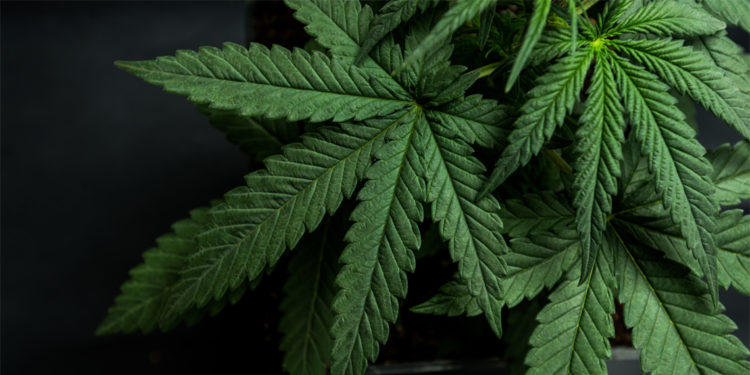by Eric W. Dolan
August 8, 2021

Psychedelic drugs such as psilocybin and LSD can induce an experience known as oceanic boundlessness, which is characterized by a feeling of oneness with the world and a sense of awe. New research, published in the Journal of Psychopharmacology, provides some preliminary evidence that high doses of cannabis can also produce this type of altered state of consciousness.
“Once the psilocybin labs started emphasizing that oceanic boundlessness seemed to be the mechanism underlying the molecule’s antidepressant effects, nearly every cannabis fan couldn’t help but ask, ‘Hey! Doesn’t marijuana have comparable effects?'” said study author Mitch Earleywine, a professor of psychology at the University at Albany.
“My students had already shown that ‘challenging experiences’ were common when folks ate more edibles than they intended to. Asking folks if they thought cannabis also produced these oceanic boundlessness effects seemed an obvious next step.”
For their study, the researchers used Facebook and Amazon Mechanical Turk to recruit a sample of 852 cannabis users, who completed an anonymous survey regarding the most dramatic THC experience of their lives. The survey included items from the oceanic boundlessness subscale of the Altered States of Consciousness Scale, a scientific questionnaire that is frequently used in psychedelic research.
Earleywine and his colleagues found that nearly 20% of participants reported a score on the oceanic boundlessness subscale that was above 60% of the maximum. People who report a score this high are considered as having had a “complete” or “breakthrough” oceanic boundlessness experience.
Previous research has found that psilocybin-induced experiences of oceanic boundlessness are associated with decreases in depression. In particular, “complete” oceanic boundlessness experiences were more strongly linked to decreases in depression than “non-complete” experiences.
The new findings indicate that cannabis “could create some of the subjective effects that seem to underlie psilocybin’s antidepressant effects,” Earleywine told PsyPost.
But the researchers noted that the rate of “complete” oceanic boundlessness experiences observed in their study was “significantly smaller than estimates from formal psilocybin trials.” In other words, cannabis does not appear to induce oceanic boundlessness experiences as reliably or strongly as classic psychedelic drugs.
“Formal protocols that borrow from psilocybin research, including the use of stated intentions, psychological support, music, and an eye mask, might enhance the rates of THC-induced breakthrough, potentially leading to therapeutic effects,” the researchers said. “In addition, since THC’s initial pharmacological impact varies from psilocybin’s, comparing the two in randomized clinical trials might answer important questions related to the role of subjective experiences in psychoactive-assisted psychotherapy.”
The study is the first step towards a better understanding of THC-induced mystical experiences. But future research is needed to determine whether cannabis-induced oceanic boundlessness has any positive therapeutic effects. “We need to bring folks into the lab to see if these effects are real, then get approval for a clinical trial,” Earleywine said. “I don’t recommend the home game. Cannabis can make depression worse for some people, or so it seems.”
The study, “Cannabis-induced oceanic boundlessness“, was authored by Mitch Earleywine, Luna F Ueno, Maha N. Mian and Brianna R. Altman.
No comments:
Post a Comment